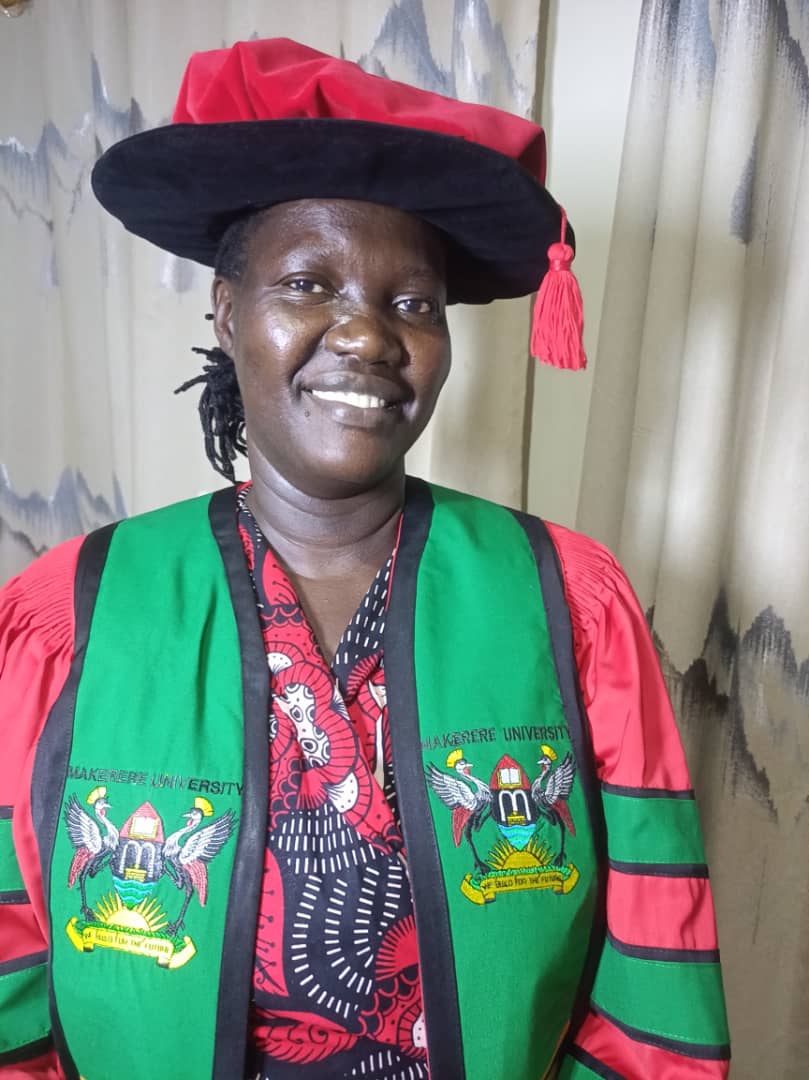Kampala, Uganda – Dr. Awor Silvia’s doctoral study has something hopeful for mothers who experience the deadly pre-eclampsia.
Her groundbreaking study that has led to Doctor of Philosophy degree during this week’s graduation ceremony at Makerere University in Uganda, is titled “Prediction of preeclampsia and adverse pregnancy outcomes at St. Mary’s Hospital Lacor in Northern Uganda.”
Dr. Awor focused on identifying crucial predictors for pre-eclampsia and adverse pregnancy outcomes using ultrasonography, laboratory blood tests, and maternal characteristics at St. Mary’s Hospital Lacor in Northern Uganda.
Pre-eclampsia is a pregnancy-related condition characterized by high blood pressure and damage to organs, most commonly the liver and kidneys.
It usually occurs after 20 weeks of pregnancy and can lead to serious complications for both the mother and the baby if not properly managed.
Signs and symptoms of pre-eclampsia may include high blood pressure, swelling (edema), sudden weight gain, headaches, and vision changes. In severe cases, it can progress to eclampsia, a serious condition that involves seizures.
Revolutionizing Predictive Methods
Her findings shed light on key predictors which include maternal age (35 years), nulliparity, a personal history of pre-eclampsia, overweight, diastolic hypertension, bilateral end-diastolic notch, leucocytosis, and low serum ALP.
The models that demonstrated exceptional fit incorporated maternal history, laboratory tests, or uterine artery Doppler indices, predicting pre-eclampsia with an impressive 84.9%.
Dr. Awor’s research delves into the nuanced details, revealing that mothers with characteristic overweight were at a notably higher risk of developing pre-eclampsia.
This presents an opportunity to develop targeted interventions for high-risk pregnancies, ensuring improved maternal and fetal health outcomes.
Implications for Prenatal Care
Her study has important implications for prenatal care in Uganda. It emphasizes the importance of incorporating screening for pre-eclampsia into routine prenatal care, offering a proactive approach to identify and manage potential complications.
This recommendation carries significant implications for healthcare practitioners, paving the way for more personalized and effective antenatal care strategies.
Dr. Awor’s research, funded by SIDA, was conducted under the expert guidance of Prof. Dan K Kaye, Prof. Jasper Ogwal Okeng, and Dr. Annettee O. Nakimuli.
As she receives the Degree of Doctor of Philosophy, Awor’s research stands as a beacon of progress in maternal healthcare, providing actionable insights that can revolutionize prenatal care strategies in Uganda and beyond.















